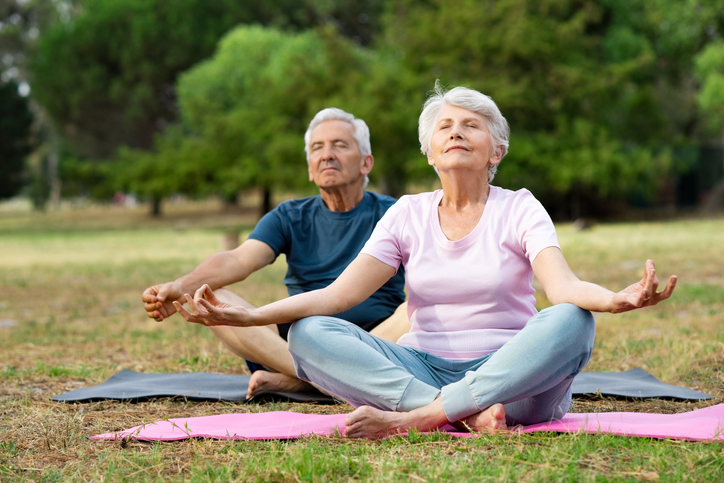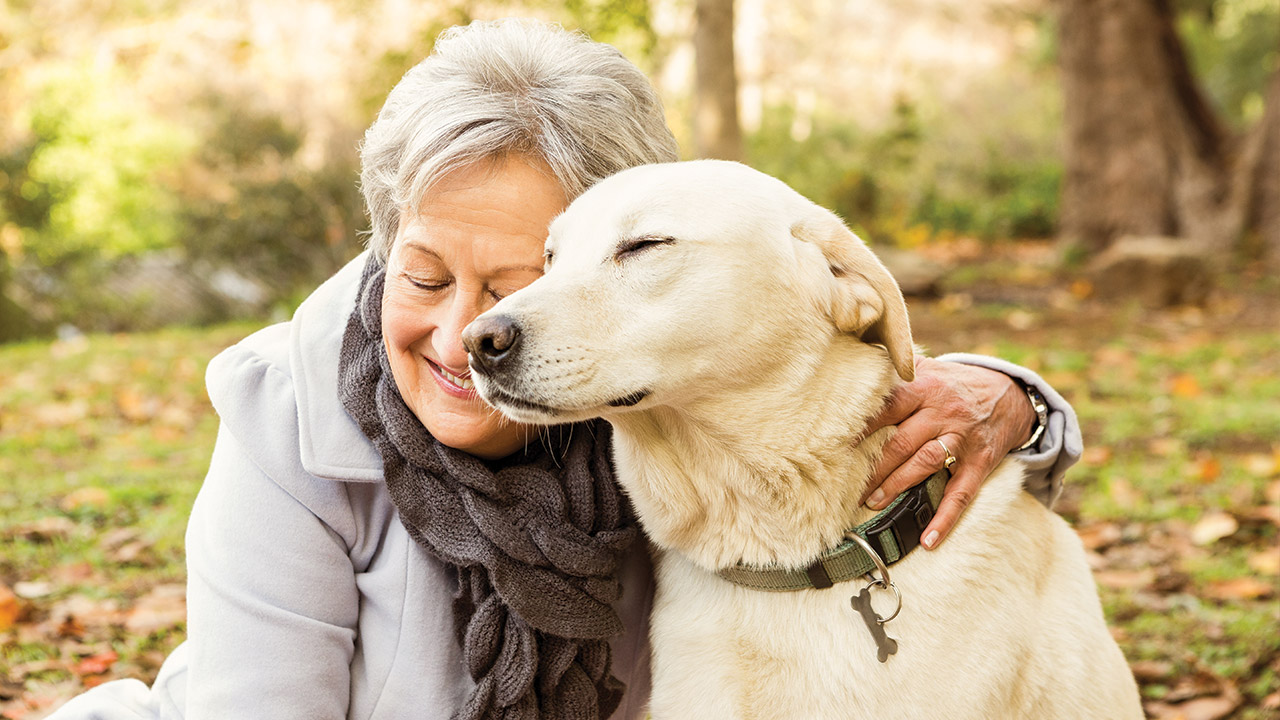In today’s article, we will talk about a practice that comes from yoga and other Asian disciplines that have had a before and after in Western society: guided meditation. Something that is very common in Eastern cultures, but until a few years ago was not valued in our own.
Guided meditation is a highly recommended practice for people suffering from anxiety or stress, as it gives them the ability to better manage these feelings. It has also been shown to have other very important benefits for those who practise it daily, especially the elderly.
Let’s take a look at what a few minutes of daily guided meditation can do for you.
What Is Guided Meditation For?
Guided meditation is used to connect with our inner self through words and images. During meditation, negative emotions such as pain, stress and worry are put aside. At present, many people are practising meditation as it has been proven to be a good technique for dealing with the stress that is normally experienced in today’s society.
This technique allows the person to achieve well-being and gives him or her mental and physical satisfaction. Good meditation has positive effects on physical and emotional health. Some of the benefits of meditation include:
- Strengthening of the immune system
- Improved cognitive abilities: memory, concentration, attention..…
- Increased resilience
- Improved health
- Emotional stability
- Help with certain conditions: high blood pressure, fibromyalgia, asthma or heart problems
Guided meditation is characterised by the presence of an expert who leads the meditation session. This person is responsible for explaining the steps to be followed in order to meditate correctly. Today, there are many online resources for practising meditation at home.
Benefits of Meditation
The practice of meditation can bring us very important benefits in our daily lives:
1. Regulating emotions: meditation allows us to learn to control emotions, especially stress or anxiety.
2. Preventing brain ageing: several studies have shown that meditation can slow down the ageing process of the brain.
3. It is used to learn to appreciate the importance of breathing and to become aware of our body.
4. Control obsessive thoughts: these are the thoughts that cause the most anxiety. Meditation allows us to work in the here and now so that the looping thoughts of what is worrying us are stopped.
5. Sleep aid: much appreciated in a society where we have very busy days and do not allow our minds to relax at night.
What Types of Guided Meditation Are There?
Depending on what motivates you to start meditating, there are different types. We explain the differences so that you can choose the one that best suits your needs:
Traditional Meditation
There is a spiritual guide or guru who gives instructions to help the listener enter the meditative state. Usually this type of meditation is used to put the person in a state of calm. It is not usually accompanied by music.
Visualisation as a Form of Meditation
The person is asked to use their imagination to create an object or scene in order to achieve greater relaxation. The meditation guide may choose to illuminate the room with coloured light according to the emotion being worked on during the session.
Relaxation and Attention to the Body
The aim is to relax the body, so the person wants to pay attention to their whole body, including their body temperature. It can be accompanied by sounds of nature (river, wind, animals…).
Binaural: Meditation Through Sound
This involves meditating with sounds of different frequencies in each ear. Headphones are used to perceive the sound and make the meditation easier. Research has shown that binaural sound makes it easier to connect with the brain.
Avoiding Negative Thoughts
The meditator is encouraged to change phrases such as I give up, it hurts, I’m not ready, etc. to more positive thoughts such as I’m not ready, I’m not ready. The meditator is encouraged to replace phrases such as I give up, it hurts, I’m not ready, etc. to more positive thoughts such as I’ve come a long way, I’ve put in a lot of effort and work, I’m in good health, etc.
Meditation with Breath Awareness
It is important to pay attention to the breath because people often do not breathe properly due to our current lifestyle. People often breathe without using the full capacity of their lungs, and they breathe quickly and superficially.
To reduce stress and anxiety it is important to pay attention to your breathing. Normally, it is advisable to exhale all the air from your lungs and then breathe deeply and slowly. Between inhaling and exhaling, we should hold the air for a few moments.
Mindfulness as a Way of Life
Mindfulness is a very fashionable philosophy in our society. In essence, it involves meditating in any space and paying attention to what is happening in that moment and the sensations it produces. Unlike other types of meditation, it is not linked to any Shinto or Buddhist religion.
Sleep Meditation
Many people find it difficult to sleep because of the stressful lives we lead. In addition, the desire to fall asleep makes the process more difficult, which happens when you fall asleep thinking about how many hours you have left before you get up.
With this type of meditation we can achieve sleep without external help or forcing our bodies. When practising this type of meditation, it is important to maintain active breathing and to pay attention to the thoughts of the day, especially the negative ones, in order to process and deal with them.
This practice, combined with home remedies for sleep, can solve your insomnia problems.
What are your thoughts on meditation? Let us know in the comments below.




